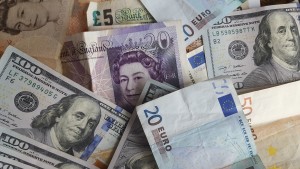By Sami Zaptia.

London, 1 February 2017:
The Tripoli-based Central Bank of Libya (CBL) has announced that it will allow every Libyan citizen the right to purchase US$ 400 every year at the official exchange rate of LD 1.4 per dollar. This will be effective from today. On the black market the dollar had been selling at around LD 6.0. It dropped to around LD 5.70 at the time of writing as a result of this CBL announcement.
The announcement by the CBL seems to have come in reaction to a raft of monetary and economic reform proposals made by the head of the Audit Bureau last week which the CBL rejected.
The CBL made no further comment on those wider proposals, which included subsidy reform and levies on imports to solve the budget deficit and the bank cash crisis.
Either way, working with an inflated Libyan population figure of 7.2 million to allow for inefficiencies and fraud, the CBL decision will cost the Libyan state annually around US$ 2.8 bn, whereas the Audit Bureau proposal calculated on US$ 2,000 per 1.2 million family would have cost the state around US$ 2.4 bn per annum.
The CBL said that its decision came as part of its role in assuring fairness in the right of every citizen in obtaining foreign exchange. The hard currency will be sold through commercial banks at the applicable exchange rate of the day.
The maximum annual limit of US$ 400 per year per citizen is subject to an increase if there is an improvement in public revenues, the CBL added. It can be paid for by the head of the family by transferring from a bank account, as opposed to having to pay in cash. This mitigates the need for the public to have to come up with cash during the country’s current cash-shortage.
The CBL said that it will allow for flexibility in the use of this amount, adding that citizens can use the amount towards their debit cards abroad or for the direct transfer abroad or to withdraw as cask. The CBL also said that citizens would not lose their annual allowance if they do not use it within the year and are able to carry it forward.
It is no doubt hoped that the announcement, if not its implementation, would cause the black market exchange rate to fall and ease pressure on the cost of most products, travel and education and health treatment abroad.
It also confirmed that it will continue to permit the existing annual right to transfer US$ 7,500 abroad against an official invoice authenticated by a Libyan embassy for education and health purposes.
The CBL informed the public that it had reached this decision after ‘‘detailed’’ studies and assured the public that it had adequate foreign exchange reserves to cover the expected demand. It assured that the national economy was doing well and that the opportunities of monetary stability and economic prosperity will overcome the difficulties of recession and risks of crisis. It also assured that illegal speculation could not last with the increased awareness of citizens of their rights and obligations.







